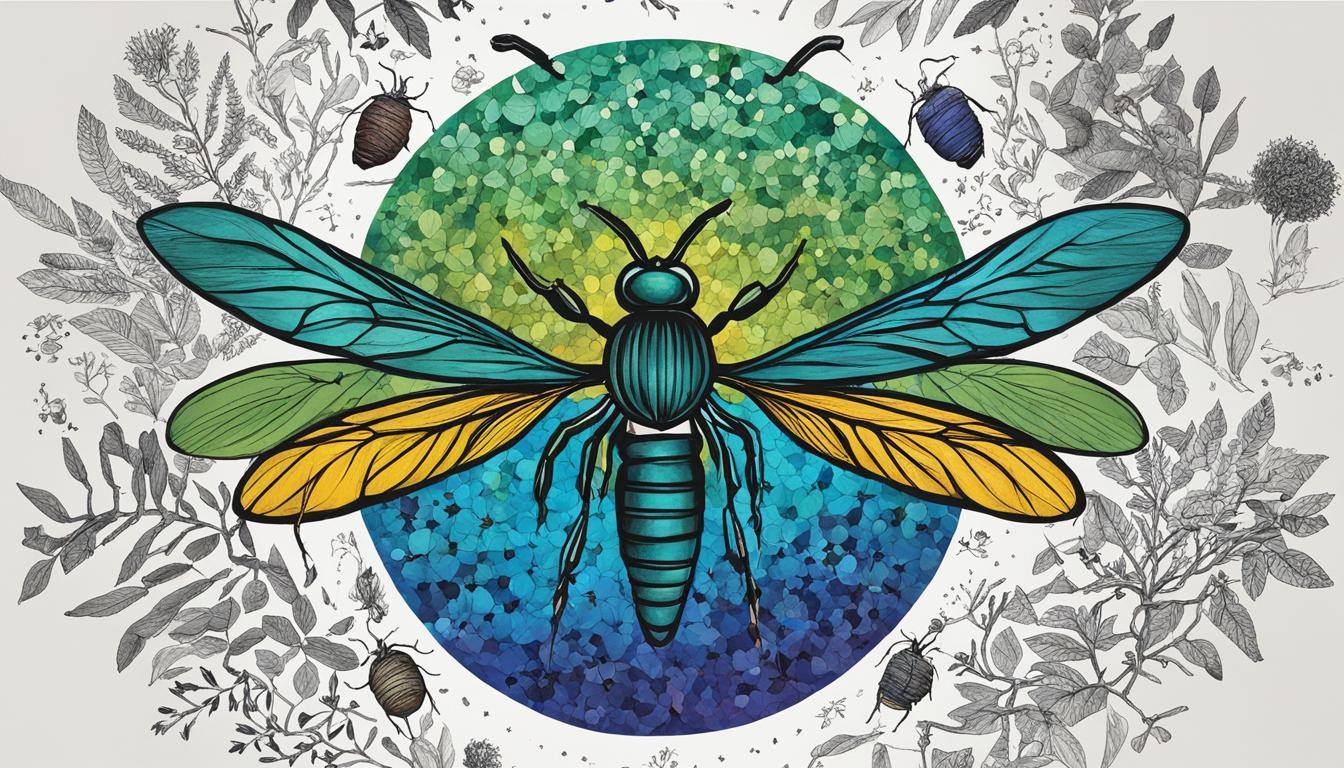With the increasing focus on public health and immunity, Eula Biss’s “On Immunity: An Inoculation” tackles the complex issue of immunization and its societal impact. The audiobook version of this highly acclaimed work promises a unique experience, allowing listeners to engage with the author’s narrative and ideas in a new way. In this review, we will explore the key themes of the audiobook, along with its style, controversies, and overall impact.
Key Themes Explored in “On Immunity: An Inoculation”
Eula Biss’s audiobook “On Immunity: An Inoculation” presents a thought-provoking exploration of several key themes related to immunity and society as a whole. Among the central topics discussed in the audiobook are:
- The history and science of immunization
- The social and cultural factors that influence vaccination decisions
- The ways in which fear and misinformation can undermine public health efforts
- The ethical considerations of herd immunity and community responsibility
- Personal experiences with illness and the impact on individual and communal health
Throughout the book, Biss draws on personal anecdotes, historical research, and scientific data to deepen readers’ understanding of these complex issues. Through her accessible and engaging writing style, she encourages listeners to think critically about their own views on vaccination and to consider the broader implications of immunization decisions for public health and society as a whole.
Eula Biss’s Writing Style and Narrative Approach
Eula Biss’s writing style in “On Immunity: An Inoculation” is a unique blend of personal reflection, critical analysis, and scientific explanation. Through her narrative approach, Biss explores the complexities and controversies surrounding vaccination in a way that is both accessible and engaging for her readers. Biss uses her personal experiences as a mother and citizen to illuminate the broader social and political implications of immunization.
Biss’s writing style is characterized by its clarity and precision. She avoids jargon and technical language, focusing instead on explaining complex concepts in a way that is easy to understand. At the same time, Biss’s prose is rich and evocative, drawing readers into the world she has created and allowing them to connect with the material on a deeper level.
Biss’s narrative approach is equally impressive. She weaves together personal anecdotes, historical background, and scientific research to create a cohesive and compelling argument for the importance of vaccination. By tying together these disparate threads, Biss is able to show readers the full picture of this complex and controversial issue. Her approach encourages readers to think critically and engage with the material in a meaningful way.
“Biss’s writing style in “On Immunity: An Inoculation” is a unique blend of personal reflection, critical analysis, and scientific explanation.”
Historical Context and Background
To understand the relevance of “On Immunity: An Inoculation” by Eula Biss, it is important to consider the historical context and background of immunization. Vaccines have been used for centuries to prevent the spread of infectious diseases. In 1796, Edward Jenner developed the first successful smallpox vaccine, which led to the eradication of the disease. However, the development and implementation of vaccines have not been without controversy and skepticism.
One of the most well-known examples of vaccine skepticism is the anti-vaccination movement that emerged in the late 20th century. Due to concerns about vaccine safety and the perceived risks associated with immunization, some parents have opted not to vaccinate their children. This has led to a resurgence of vaccine-preventable diseases, such as measles and whooping cough, which had previously been under control. In “On Immunity: An Inoculation,” Eula Biss examines these issues and the broader societal implications of vaccine skepticism.
Biss also delves into the historical and cultural attitudes towards immunity and disease. In the past, certain diseases were seen as a rite of passage or even as morally justifiable (such as the belief that illness was a punishment for sin). However, as medical knowledge has advanced, our understanding of the human immune system and the benefits of immunization has become more clear.
Table: Major Milestones in the History of Immunization
| Year | Event |
|---|---|
| 1796 | Edward Jenner successfully vaccinates against smallpox |
| 1885 | Louis Pasteur develops the first rabies vaccine |
| 1921 | Albert Calmette and Camille Guerin develop the BCG vaccine for tuberculosis |
| 1955 | Jonas Salk develops the first polio vaccine |
| 1963 | Measles vaccine introduced in the United States |
| 1980 | Smallpox eradicated worldwide |
| 2020 | COVID-19 vaccine developed and approved for emergency use |
As demonstrated in the table above, there have been many important milestones in the history of immunization. Vaccines have saved countless lives and prevented the spread of deadly diseases. However, there are still many challenges to overcome in terms of vaccine hesitancy and ensuring equitable access to immunization.
Analysis of Scientific Concepts
Throughout “On Immunity: An Inoculation,” Eula Biss provides a thorough analysis of scientific concepts related to immunization and public health. The audiobook delves into the science behind vaccinations, exploring important topics such as herd immunity, vaccine hesitancy, and the history of immunization.
Biss draws upon a range of scientific sources to support her arguments, providing listeners with a detailed understanding of the principles that underpin immunization. Her analysis sheds light on the complex scientific concepts that surround vaccinations, making them accessible to a broader audience.
One of the central scientific concepts explored in the audiobook is the idea of herd immunity. Biss explains how this phenomenon works and why it is critical for the success of immunization programs. Her analysis is supported by clear examples and data, making it easy for listeners to understand the importance of herd immunity.
The audiobook also examines the science behind vaccine hesitancy, a phenomenon that has become increasingly prevalent in recent years. Biss unpacks the reasons why individuals may be hesitant to vaccinate and provides a thoughtful analysis of this complex issue.
Scientific Concepts Explored in “On Immunity: An Inoculation”
| Scientific Concept | Description |
|---|---|
| Herd Immunity | A phenomenon in which the spread of a contagious disease is slowed or stopped when a sufficient percentage of the population has become immune to it. |
| Vaccine Hesitancy | A reluctance or refusal to vaccinate despite the availability of vaccines. |
| Antibodies | Proteins produced by the immune system that help to identify and neutralize foreign pathogens, such as bacteria and viruses. |
| Viral Load | The measure of the amount of virus present in an infected individual’s bloodstream. |
| Immune System | The body’s complex network of organs, cells, and tissues that work together to recognize and fight off foreign invaders. |
Biss’s analysis of scientific concepts is one of the many strengths of “On Immunity: An Inoculation.” The audiobook presents a comprehensive overview of the scientific principles that underpin immunization, making it an essential resource for anyone looking to deepen their understanding of this important topic.
Societal Impact and Relevance
Since its publication, “On Immunity: An Inoculation” by Eula Biss has sparked crucial conversations about immunization, public health, and societal responsibility. Biss’s exploration of these themes is particularly relevant in today’s society, where vaccine hesitancy and misinformation have become increasingly prevalent.
The book’s societal impact is evident in the discussions it has sparked and the attention it has garnered from both healthcare professionals and the general public. Biss delves into complex topics such as herd immunity, healthcare disparities, and the ethics of vaccination in an accessible and thought-provoking manner, making her work a valuable contribution to the ongoing discourse.
Moreover, Biss’s examination of the cultural and historical significance of immunization sheds light on the broader societal implications of infectious disease prevention. As such, “On Immunity: An Inoculation” has relevance not only in the healthcare field but also in broader social, political, and cultural contexts.
Overall, “On Immunity: An Inoculation” has had a significant societal impact since its release, serving as a catalyst for crucial conversations and contributing to our understanding of the importance of immunization.
Critique and Controversies Surrounding the Book
Like any work that broaches sensitive topics, “On Immunity: An Inoculation” by Eula Biss has spurred critique and sparked some controversies. Some readers have found the book biased, claiming that Biss makes a one-sided argument and presents one perspective only, rather than striving for objectivity. Others have criticized her lack of scientific expertise, arguing that she relies too heavily on personal anecdotes rather than presenting scientific evidence and analysis.
Moreover, some readers have voiced concerns that certain arguments made in the book present misleading information about vaccination and could lead to harmful decisions. However, it is essential to mention that many experts in the field have praised “On Immunity: An Inoculation” for its adept handling of complex and controversial issues surrounding immunization.
“Eula Biss has written a book that is not only timely but valuable. Her exploration of immunity and identity raises questions essential to our American identity. On Immunity reveals that vaccination is not just an individual choice but an urgent communal necessity.” – Sandra Steingraber, biologist and author of “Living Downstream”
Despite the mixed reception from various quarters, “On Immunity: An Inoculation” remains a thought-provoking and engaging audiobook that raises essential questions about community immunity, risk perception, and the role of science in society. It is noteworthy that the book has received high accolades over the years, including being named a finalist for the 2014 National Book Critics Circle Award and the 2015 Pulitzer Prize in General Nonfiction.
Narration and Audio Experience
“On Immunity: An Inoculation” by Eula Biss is a compelling and thought-provoking audiobook that provides a unique perspective on the controversial subject of immunization. Narration and Audio Experience; the audiobook version of the book features a highly engaging and dynamic narration that brings the text to life, making it all the more impactful and meaningful.
The narrator’s voice is clear and precise, delivering the author’s words with passion and emotion at just the right moments. The sound quality is excellent, ensuring that every word is crystal clear and easy to understand.
The audio experience of “On Immunity: An Inoculation” is immersive and powerful, providing listeners with a truly exceptional way to engage with the text. Through the audiobook format, readers are able to experience the book in a completely new and different way, allowing them to connect with its themes and ideas on a deeper level.
This unique audio experience makes the book an ideal choice for those who prefer to listen to their books rather than read them. It is also an excellent way for those who are visually impaired or have difficulty reading to enjoy the book and engage with its compelling ideas and narratives.
The Power of Audiobooks
The popularity of audiobooks has grown tremendously in recent years, and with good reason. Audiobooks offer a unique and highly engaging way for readers to experience a book, providing a fresh and dynamic perspective that is not possible through traditional reading.
Through the power of narration and sound, audiobooks are able to bring a book’s characters, themes, and ideas to life in a way that is truly remarkable. They provide an immersive and engaging listening experience that is perfect for long car rides, workouts, or simply relaxing at home.
“On Immunity: An Inoculation” is an excellent example of the power of audiobooks and how they can enhance the overall reading experience.
Personal Reflections and Connections
As I listened to Eula Biss’s “On Immunity: An Inoculation,” I found myself reflecting on my own experiences with vaccinations and their impact on my health as well as my community. Biss’s exploration of the history of immunization and the cultural and social factors influencing vaccine hesitancy resonated with me on a personal level, as I have witnessed the effects of anti-vaccine sentiments within my own circles.
In particular, Biss’s examination of the way in which vaccination decisions are often influenced by emotions rather than solely on scientific evidence struck a chord with me. While I myself have made the choice to vaccinate based on scientific evidence and medical recommendations, I have witnessed others opt out of vaccines due to fear or distrust of the medical establishment. This has led to not only individual consequences but also larger societal consequences, such as outbreaks of preventable diseases.
Biss’s honest and thoughtful approach to a contentious topic has helped me understand the complex factors that go into vaccination decisions and has encouraged me to continue advocating for evidence-based medicine and community health.

Reception and Awards
Eula Biss’s audiobook “On Immunity: An Inoculation” received critical acclaim upon its release, with many reviewers praising its insightful exploration of vaccination and immunity in contemporary society.
| Award | Year |
|---|---|
| National Book Critics Circle Award | 2014 |
| Graywolf Press Nonfiction Prize | 2012 |
| Chicago Tribune Heartland Prize for Nonfiction | 2014 |
The audiobook was also a finalist for the National Book Critics Circle Award in 2015, further highlighting its impact and relevance in the literary community.
With its insightful analysis and eloquent prose, “On Immunity: An Inoculation” continues to captivate and inspire readers and listeners alike.
Impact on Public Discourse
The release of Eula Biss’s audiobook “On Immunity: An Inoculation” has had a significant impact on public discourse, particularly regarding the importance and safety of immunization. Biss’s deep dive into the history, science, and societal implications of vaccinations has sparked renewed discussion and debate among individuals, policymakers, and healthcare professionals.
Through her vivid storytelling and powerful arguments, Biss has challenged long-held beliefs and misconceptions about vaccinations, prompting many to reevaluate their stance on the issue. Her work has not only increased public awareness and understanding of the benefits of immunization but has also highlighted the consequences of widespread misinformation and fear-mongering surrounding vaccines.
The impact of “On Immunity: An Inoculation” extends beyond individual attitudes and beliefs and has influenced public policy as well. Biss’s work has been cited in legislative debates and public health campaigns, shaping the conversation around vaccination and public health initiatives.
Overall, “On Immunity: An Inoculation” has served as a catalyst for change, inspiring critical thinking and constructive dialogue on a crucial topic affecting individuals and communities around the world.
Recommendations for Further Reading
If you enjoyed listening to “On Immunity: An Inoculation” by Eula Biss, you might be interested in exploring further works on the topic of immunization and public health. Check out these recommendations:
- The Vaccine Race: Science, Politics, and the Human Costs of Defeating Disease by Meredith Wadman
- The Immortal Life of Henrietta Lacks by Rebecca Skloot
- The Ghost Map: The Story of London’s Most Terrifying Epidemic—and How It Changed Science, Cities, and the Modern World by Steven Johnson
These books delve deeper into the scientific and social aspects of vaccines and disease prevention, providing valuable insights and perspectives that complement the themes explored in “On Immunity: An Inoculation”.
Analysis of the Audiobook Format
Eula Biss’s “On Immunity: An Inoculation” is a thought-provoking audiobook that explores the complexities of vaccination and immunity. The audiobook allows listeners to experience the book in a unique way, with narration by the author that captures the nuances of her writing style and delivery of her message.
One strength of the audiobook format is that it allows for a more immersive experience. The spoken word can convey emotion and tone in a way that written text cannot, bringing the text to life in the listener’s mind. Additionally, the audiobook format allows listeners to engage with the text while performing other activities like driving or exercising, making it a convenient option for those with busy schedules.
One potential weakness of the audiobook format is that it may be difficult for some listeners to understand complex scientific concepts without visual aids. While Biss does an excellent job of explaining these concepts in simple terms, some listeners may struggle to conceptualize them without accompanying visuals. Additionally, the audiobook does not provide the footnotes and references that are found in the print version of the book, making it harder for listeners to fact-check and follow up on sources.
Overall, the audiobook format of “On Immunity: An Inoculation” provides a unique and engaging experience for listeners. While it may not be the best option for those seeking a highly academic understanding of the topic, it offers a convenient and accessible way to engage with Biss’s thought-provoking exploration of vaccination and immunity.

Conclusion
In conclusion, “On Immunity: An Inoculation” by Eula Biss is a thought-provoking and insightful exploration of the complex issues surrounding immunization in today’s society. Biss’s unique writing style and narrative approach make this audiobook a compelling and engaging listen. Through her examination of historical context, scientific concepts, and societal impact, Biss provides a nuanced perspective on a critical topic.
While the book has generated some controversy and critique, it has also received numerous awards and accolades, underscoring its impact and relevance. Overall, “On Immunity: An Inoculation” is an important work that has made a significant contribution to public discourse on immunization.
For those interested in exploring the topic further, we recommend checking out some of the other resources on immunization and public health, including “The Immortal Life of Henrietta Lacks” by Rebecca Skloot and “Vaccinations and Public Concern in History” by Andrea Kitta.
Thank you for reading our audiobook review of “On Immunity: An Inoculation” by Eula Biss. We hope you found our analysis helpful and informative.



